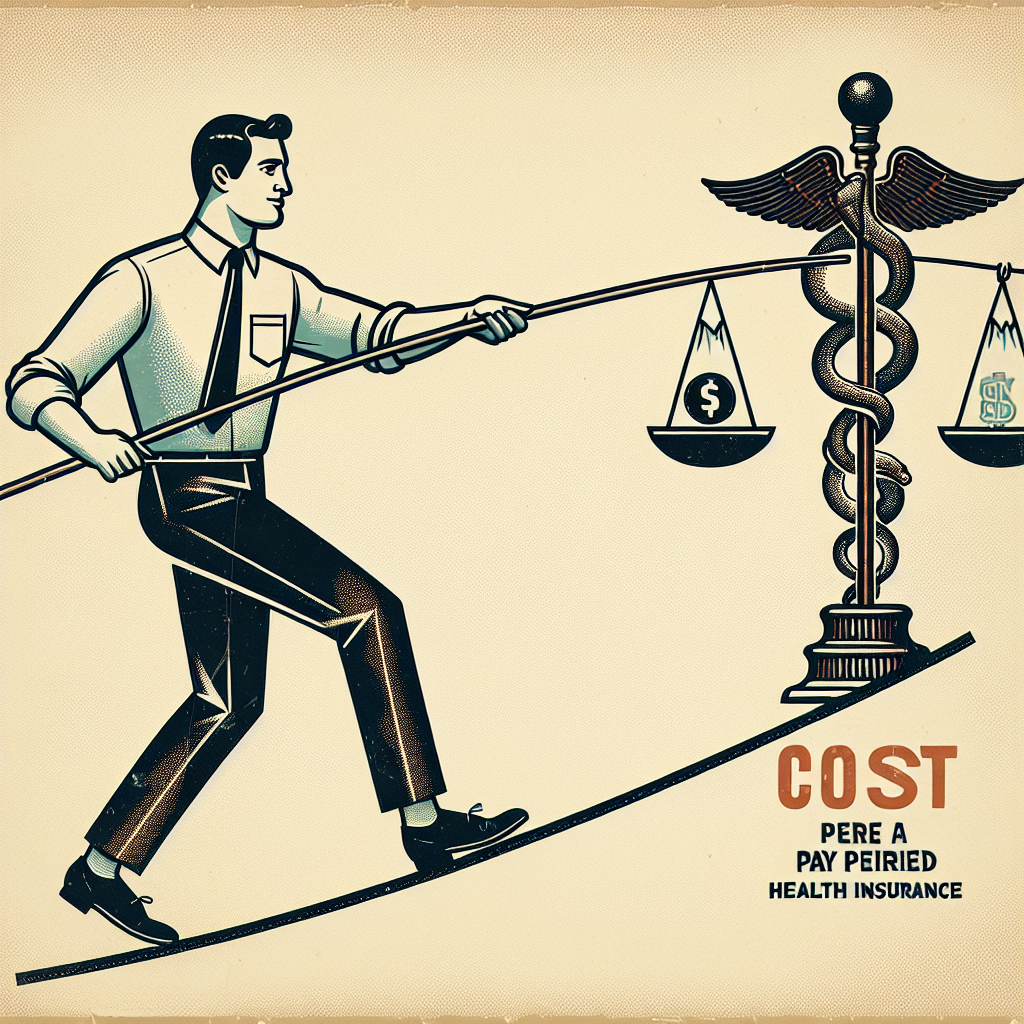Filed under Health Insurance on
Health Insurance Guide for Seasonal Workers

For many individuals, seasonal work presents an ideal employment arrangement, offering flexibility and often aligning with lifestyle preferences or secondary income needs. However, the perennial challenge that seasonal workers face is securing adequate health insurance coverage. Without the safety net of employer-provided insurance that typically accompanies full-time work, seasonal workers must navigate the complex landscape of insurance options on their own. This guide aims to unravel the intricacies of obtaining health insurance for seasonal workers, offering actionable insights and real-life examples to help you make informed decisions about your health coverage.
Understanding Seasonal Work and Health Insurance Challenges
Before diving into the specifics of how to secure health insurance as a seasonal worker, it’s essential to grasp the nature of seasonal work and the inherent health insurance challenges it presents. Seasonal work often encompasses industries such as agriculture, tourism, retail, and holiday-related services. These jobs typically last less than six months and often align with specific times of the year.
The very nature of seasonal work means that these workers are frequently without a stable income, worrying about health insurance coverage during and between jobs. Traditional employer-provided insurance plans are usually off the table, placing the onus on workers to find coverage themselves.
Main Health Insurance Options for Seasonal Workers
1. Marketplace Health Insurance Plans
The Affordable Care Act (ACA) opened the door for many seasonal workers seeking coverage through the Health Insurance Marketplace. These plans can be a lifesaver, as they offer a range of coverage levels (often referred to as metal levels). Depending on your income, you may qualify for subsidies to help reduce the cost of premiums.
A real-life example to consider is Jane, a ski instructor who works from November to April. Between her gigs, she relies on a marketplace plan that she tailored specifically to her needs and budget. Thanks to her income bracket, she benefits from premium tax credits, making her plan affordable even during the off-season.
2. Medicaid
If your income is below a certain threshold, you may qualify for Medicaid. For many seasonal workers, particularly those with limited income during their off-season, Medicaid can provide comprehensive health coverage at a very low cost. Eligibility and benefits vary by state, so it's crucial to check your state's specific program.
Take, for example, Tom, who works temporary jobs in agriculture between May and September. During his off-seasons, his income qualifies him for Medicaid, allowing him to maintain health coverage without straining his finances.
3. Short-term Health Insurance Plans
Short-term health insurance plans are designed to fill temporary gaps in coverage. These plans can often be purchased for one to twelve months, and though they don't offer the full benefits of ACA plans, they can provide sufficient temporary coverage.
For instance, Emily, who works in holiday retail, finds short-term plans useful when she is between employment stints. Although they don't cover pre-existing conditions, they offer her peace of mind against unforeseen accidents and illnesses.
4. Employer's Off-Season Health Benefits
Some employers offer health benefits that extend beyond the working season. This can be a crucial differentiator for seasonal workers when choosing among job offers. Always inquire about the scope of benefits during your hiring process.
Consider Mark, whose landscaping employer offers a group health plan that covers him year-round cheap premiums. This benefit allows him to focus on his work and career advancement without worrying about health coverage.
Navigating the Enrollment Process
Once you have identified your preferred health insurance option, the next step involves understanding the enrollment timelines and processes. Lucky for seasonal workers, the ACA provides special enrollment periods for those who experience changes in employment status or income level. Stay informed about these special enrollments, as they can provide access to health insurance outside of the normal signup windows.
- For marketplace plans, make sure to gather all required documentation such as proof of income, residence, and any other pertinent personal information.
- Engage with a navigator or insurance broker if possible. These professionals can clarify plans, benefits, and the often-confusing jargon.
- Continuously update your information. Especially for seasonal workers, income levels (and thus eligibility) can change rapidly, directly influencing the subsidies and plans available to you.
Managing Costs and Maximizing Benefits
1. Understanding Premiums and Deductibles
Insurance plans come with monthly premiums and often deductibles. Lower premiums might seem tempting, but they frequently come with higher deductibles, requiring a more significant out-of-pocket cost when you seek services. Striking the right balance here is important for cost-effective coverage.
2. Use Preventative Services
Most insurance plans, including marketplace options, cover preventative care at no extra cost. This is a valuable benefit that can catch health issues early, potentially avoiding costly treatments later.
3. Stay Informed on Health Insurance Laws
Understanding the legal landscape can be challenging, but critical. For instance, knowing what "out-of-pocket maximums" are or understanding how "coinsurance" works can significantly save you money. Additionally, laws can change, especially around what's covered, so keeping updated can prevent nasty surprises.
Real-Life Advice from Seasonal Workers
Hearing directly from other seasonal workers can provide additional practical insights:
- Alice, a festival organizer, advises maintaining a well-updated calendar that outlines all enrollment periods and deadlines.
- Ben, an event photographer, recommends building health insurance costs into your rates if self-employed, smoothing out the financial impact.
- Cynthia, a summer camp counselor, suggests researching telehealth services, as they often come at reduced costs and provide flexible medical consultation options.
FAQs
1. Can I qualify for a special enrollment period as a seasonal worker?
Yes, changes in employment or income can qualify you for a special enrollment period under the ACA, allowing you to sign up for insurance outside standard enrollment windows.
2. How can I find out if I qualify for Medicaid?
Eligibility for Medicaid varies by state. You can visit your state's Medicaid website or the healthcare marketplace to check your qualifications based on your household income and size.
3. Are short-term health plans suitable for all seasonal workers?
Short-term plans are helpful for temporary coverage but remember, they typically don't cover pre-existing conditions and have limited benefits. They are best for bridging short gaps in insurance.
4. What are some common pitfalls when selecting a health insurance plan?
Common pitfalls include underestimating deductibles or not understanding the provider network. Ensure the plan covers your preferred doctors and necessary medications.
5. Can my employer help me with health insurance coverage?
While many seasonal employers don't offer coverage, some do extend benefits beyond the season. Always inquire about potential year-round options during your hiring process.
In summary, while securing health insurance as a seasonal worker presents challenges, there are diverse options available to tailor coverage to your unique needs. By understanding each option, staying informed about enrollment opportunities, and planning around potential financial impacts, seasonal workers can ensure they have the health coverage they need, no matter the season.





